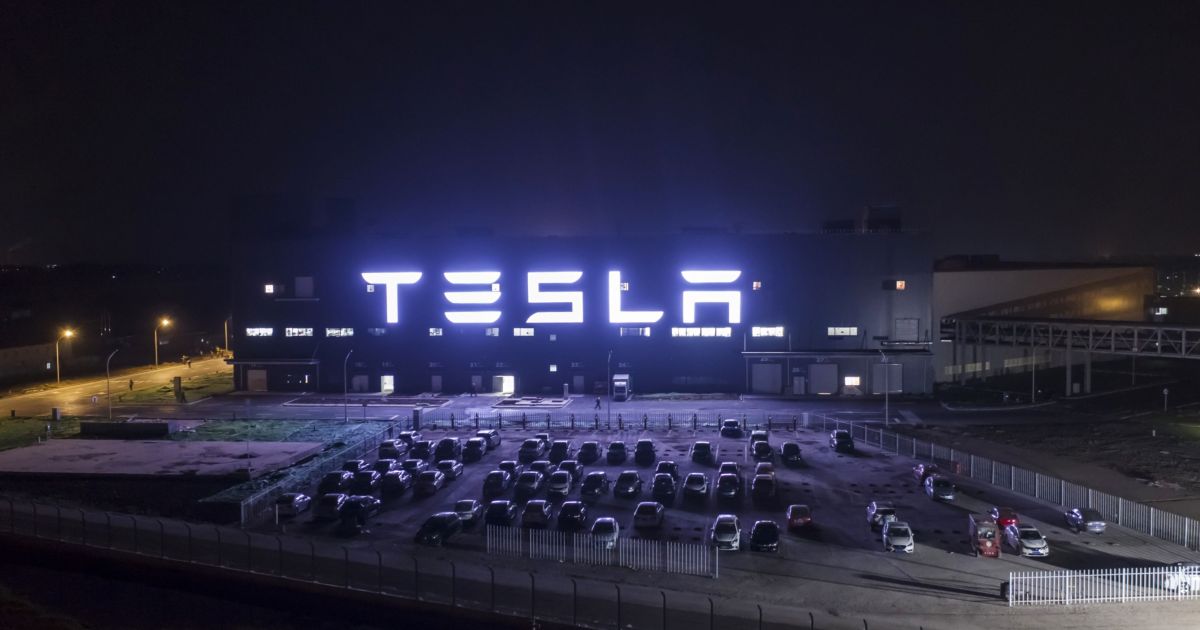Tesla domestic China shipments plummet 69% in wake of recalls
Shipments of Tesla’s China-made cars to the domestic market plunged last month following a rash of negative publicity for the EV maker and the recall of nearly every Tesla sold in China.
Tesla Inc. shipments of China-made cars to the local market fell sharply last month following a run of negative publicity and the recall of almost every vehicle the company has sold in the country.
Elon Musk’s electric-vehicle maker reported domestic China shipments of just 8,621 units in July, a 69% plunge from June. Exports from the company’s Shanghai factory almost quintupled to 24,347 vehicles, with most destined for Europe. That meant overall Tesla China shipments in July slipped just 0.6% to 32,968.
After initially enjoying a red-carpet welcome in China, including being the only foreign automaker allowed to wholly own its local operation, Tesla has endured a series of setbacks this year. A protest by a disgruntled owner at the Shanghai auto show in April went viral on social media and was followed by a spate of crashes and regulatory scrutiny of safety and customer service issues.
At the same time, Tesla is facing fiercer competition from local EV startups including Nio Inc., Xpeng Inc. and Li Auto Inc., the latter of which just raised $1.5 billion in a Hong Kong listing that will help fund research and development and infrastructure expansion. Li Auto delivered 8,589 cars in July, while Xpeng sold 8,040 vehicles and Nio delivered 7,931. It’s the first month that domestic upstarts have recorded local deliveries in line with their American rival.
“We think current demand for Tesla is fine in China, but that Tesla has over/forward built capacity relative to the U.S., which is triggering price cuts and exports,” Bernstein analysts led by Toni Sacconaghi said in a report this week. Domestic competition is “likely to make it difficult to Tesla to fully capture its fair share or sustain similar levels of profitability.”
Tesla’s domestic sales were the lowest in the last 15 months, Dan Levy, a Credit Suisse analyst, wrote to clients. The carmaker’s shares fell as much as 0.9% shortly after the start of regular trading Tuesday.
In addition Europe, Tesla’s China-made cars are being exported to Japan, Australia, New Zealand, Singapore and Hong Kong. The company has said the Shanghai factory has become its primary export hub.
“Tesla tends to be aggressive in exports regardless of the domestic market in July,” PCA Secretary General Cui Dongshu said during a briefing Tuesday. “The fact that Tesla’s domestic deliveries didn’t reach 10,000 is normal and fine.”
Tesla last month launched a cheaper version of its locally built Model Y SUV crossover, so some customers may have delayed their purchase until that variant is available. The model is expected to start delivery in the coming months.
The standard-range Model Y will start from 276,000 yuan ($42,600) after government subsidies, about 20% less than the initial longer-range version. Tesla also recently cut the price of its basic Model 3 by 15,000 yuan to 235,900 yuan.
By comparison, Nio’s ES6 SUV starts from around 358,000 yuan and Li Auto’s Li One sells for 338,000 yuan. While Tesla still leads the luxury EV market, its Chinese rivals are catching up with stylish designs, localized software and meticulous customer care.
The launch of a cheaper Model Y and the price cut for the Model 3 will “for sure attract more internal combustion engine car owners to embrace the electric vehicles,” Tesla China said in a statement Tuesday.
Overall retail sales of cars, sport utility vehicles and multipurpose vehicles declined by 6.4% in July from a year earlier to 1.52 million units, PCA data showed Tuesday. New-energy vehicle sales, which include electric cars and plug-in hybrids, increased almost 170% from a year earlier to 222,000, led by strong showing from BYD Co., Tesla, and SAIC Corp.
Cui said he expects the global chip shortage to start to ease after next month, citing the government’s investigation of possible price manipulation that was announced last week.
“The national antitrust probe into semiconductors led by the state authorities will intimidate some chip distributors and they will release the inventory they were hoarding, which will further benefit the production and sales,” he said.
(Updates with analyst’s comment and share move in the sixth paragraph.)
–With assistance from Reinie Booysen.













